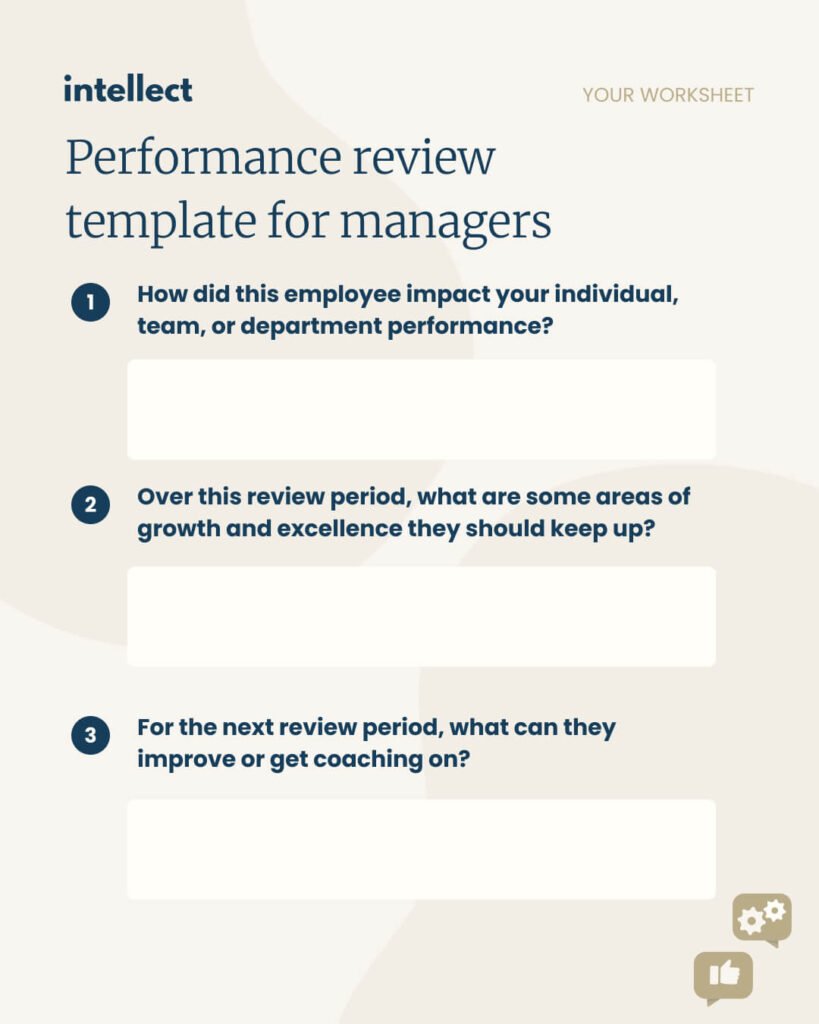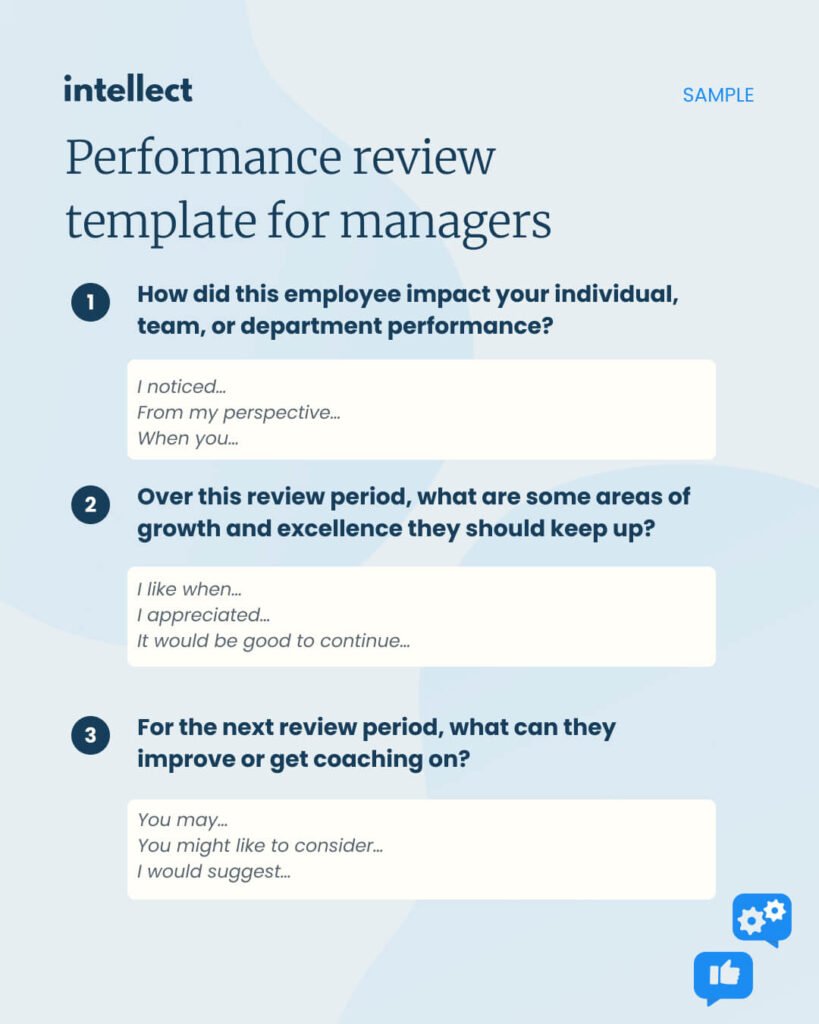The performance review season can be a stressful period for managers. Evaluating your subordinates’ performance may be straightforward, but delivering feedback in a helpful and empathetic manner takes practice. If you’re a manager dreading the upcoming employee appraisal season, Intellect’s Executive Coach Robyn Cam has some nifty tips on how to make the most out of a performance review.

Preparing your feedback
When it comes to giving feedback as a manager, it is important to not only be concise and accurate, but also attuned to your subordinate’s feelings. “We are all humans, we are all people, we are all here to get feedback because we can all grow and learn from that feedback regardless of what stage or level we are at,” says Robyn.
It is important to keep that in mind from the get-go, when you begin to reflect on your subordinate’s work over the review period with the following questions:

Download your performance review template now.
Three rules of giving feedback
The manner in which you deliver the feedback is as important as the evaluation itself. Robyn suggests using these tips to guide you during the performance review session:
1. Focus on behaviours, not personal traits
It is important to focus on your colleagues’ behaviours or actions, rather than their personality. “Please remember that you aren’t with them 24/7,” says Robyn. “We can only be certain about our experience working with that person in that time and space.”
For that reason, it may be unfair to associate behaviours at work with personality traits. For instance, a colleague who tends to arrive late to meetings on Monday mornings may not necessarily be a tardy person all around. Besides, their reasons could be personal, like having to drop a child at school. When addressing their punctuality, make references to certain behaviours rather than use blanket statements such as “I find you to be a tardy person”.
2. Give specific examples
When you’re giving feedback at employee appraisal sessions, give context by using specific examples. For example, make references to the project, meeting, or environment where you noticed a certain behaviour.
“It’s really important that you give that specific example, not the day in time, but that environment, that situation, because when that feedback is all collated and put together, that person that you are reflecting on might act differently in a different type of meeting or in a different space,” says Robyn.
At times, your subordinate’s work may have been impacted by an event in their personal lives. While it’s not necessarily a manager’s duty to keep tabs on the latter, being specific helps them to grow and perform better in similar scenarios down the road.

3. Be accurate, fair, honest, straightforward and compassionate
In short, give feedback to your subordinates in the way that you would want to hear it for yourself. “We’re all a team here, we all want to grow, stretch and support each other,” says Robyn. “So when you’re giving feedback, even when it’s critical feedback, constructive feedback, you can still do it in a gentle, kind way.”
Before going into an appraisal session, think of how to word your feedback in a fair and compassionate fashion but avoid beating about the bush lest your point gets lost altogether. Being straightforward and avoiding euphemisms (e.g. “you are quite a character”) prevents miscommunication, and ensures that your subordinate understands your feedback accurately.
As long as your feedback is constructive and reasonable, you should feel confident in delivering it in a straightforward manner. It is good to balance it with some praise, but you don’t have to match it each time just to help people feel better, says Robyn.
Phrasing feedback tactfully

The words that a manager uses during appraisals can leave a deep impression. According to Robyn, managers should avoid definitive statements such as, “You always do this” or “You never do this”. Rather, use words that are specific to the scenarios or behaviours that you are referring to.
For example, instead of saying, “You never respond to my messages”, try these:
- Often, you do not reply to my Slack messages until the end of the day and that holds up my work.
- Could you update your status in Slack regularly so that I know when you are available?
- Can you confirm you have read my messages so that I know you have seen it and will respond in due course?
Here are some words that you can use to start your sentences, with reference to the template questions:

Download a sample now.
It’s not easy being a manager, much less one who truly cares for their team. These tips from Robyn not only help you empower your team members through constructive feedback, but also guide you in your journey to becoming a better manager and leader.
For those who would like more career guidance, Intellect’s behavioural health coaches offer support around the clock. Users can instantly make live video consultations with coaches and receive immediate, real-time support via text as well. Here’s how it works.








